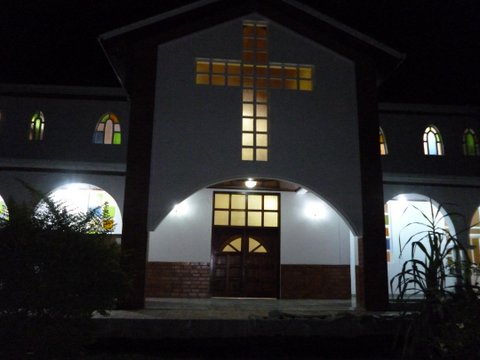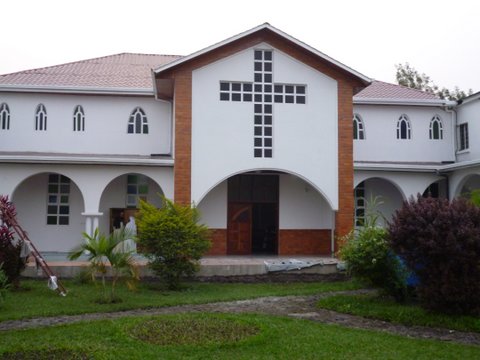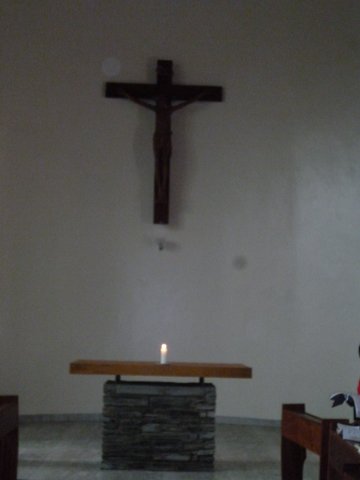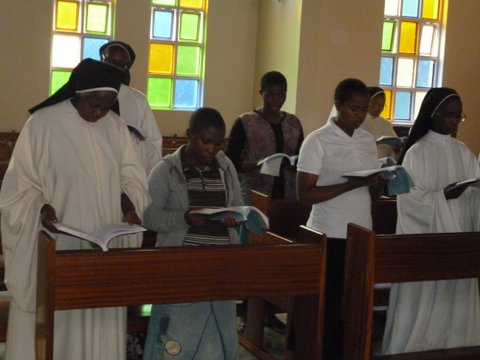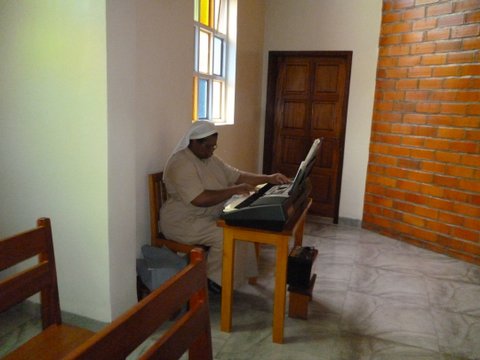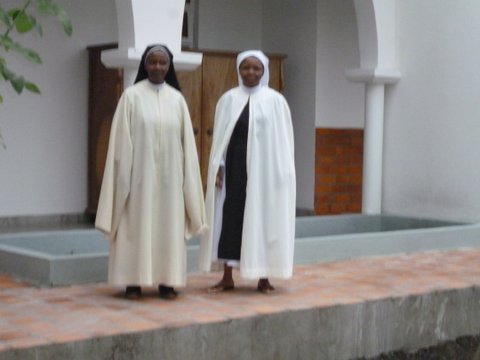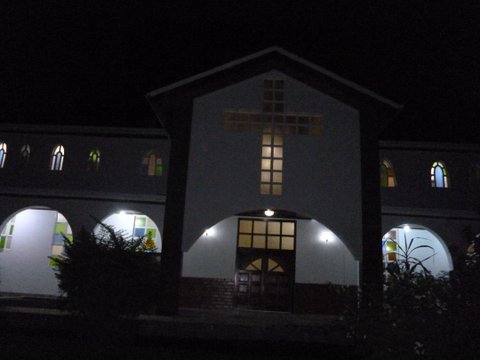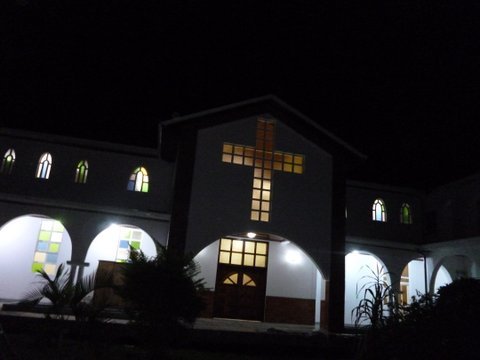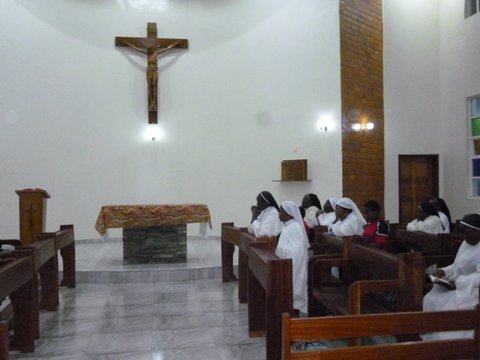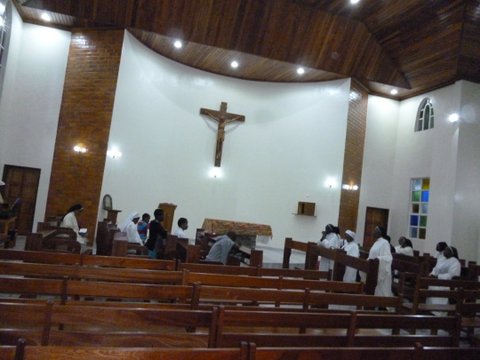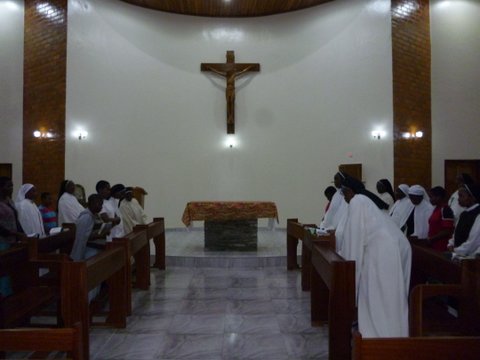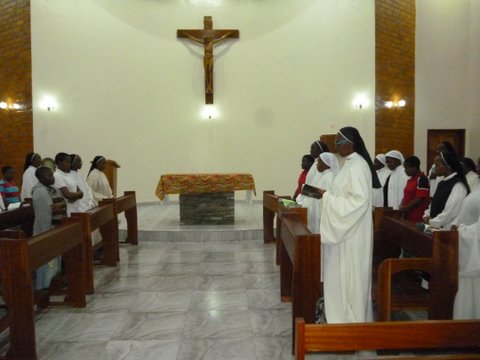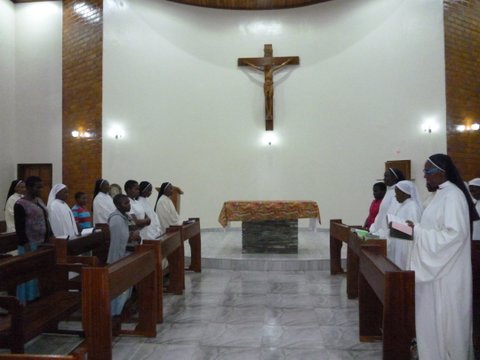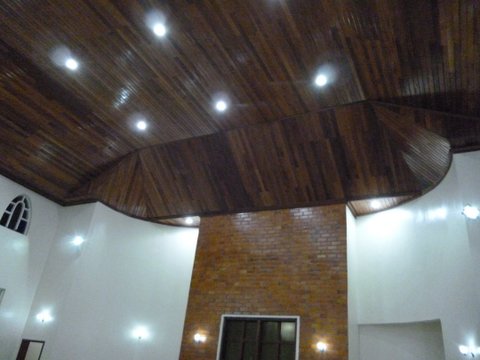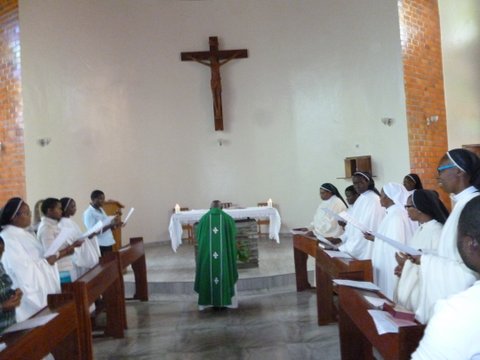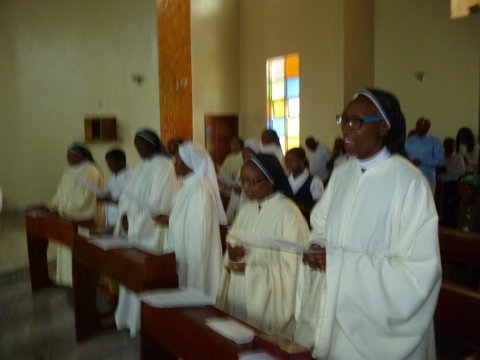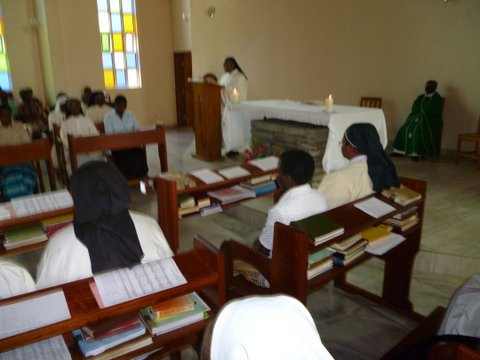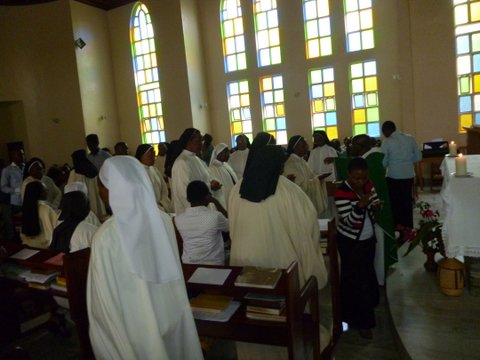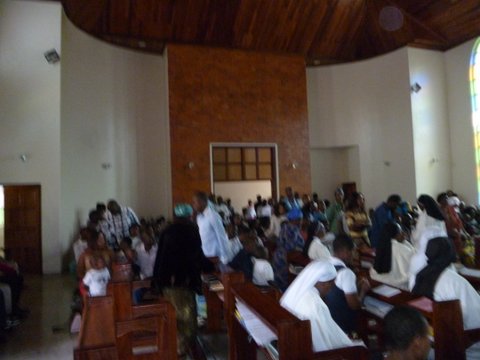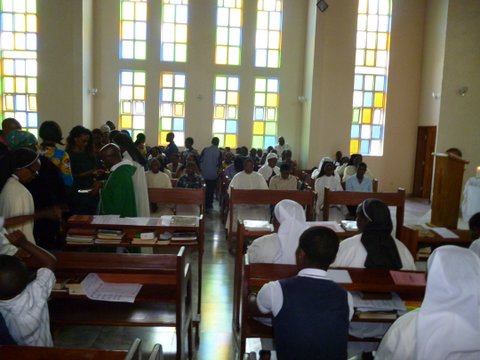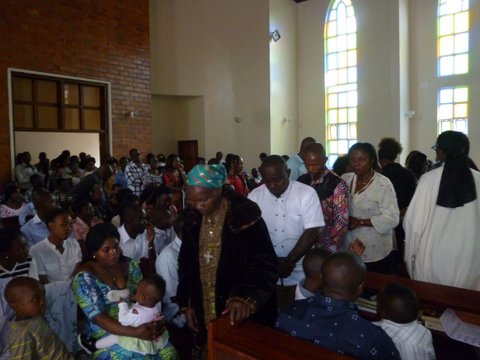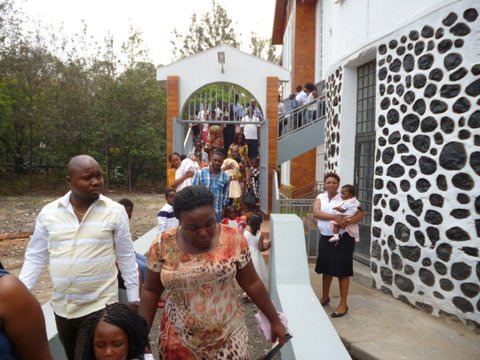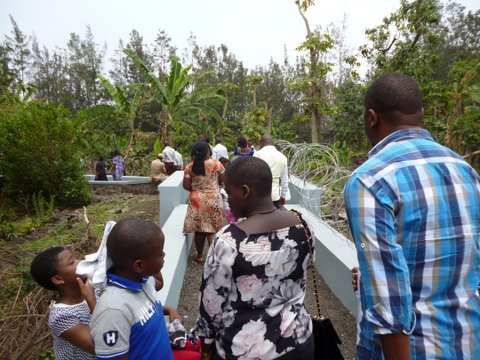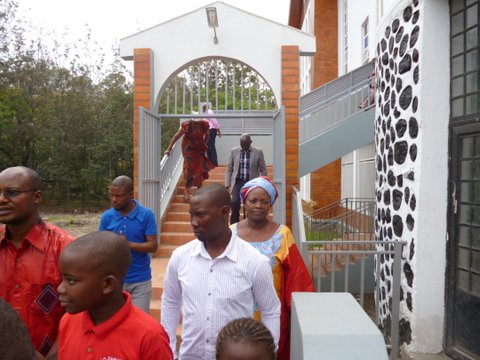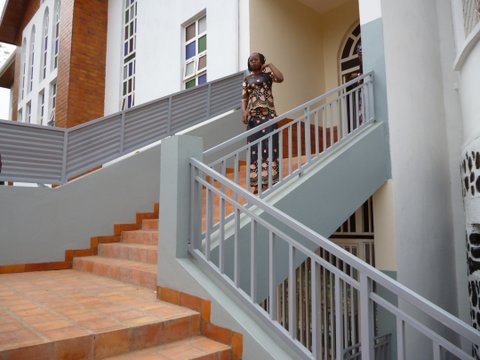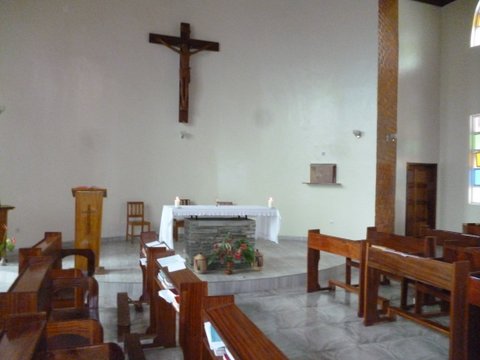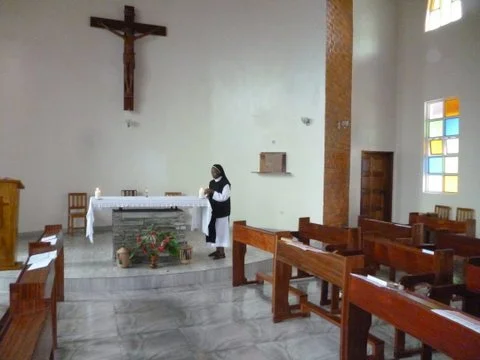All Souls Day is traditionally a day for the remembering the dead, for praying for all those who have gone before us, made us the people we are now, laid the foundations on which we build our lives and live out our hopes and dreams, our tears and sadness. Remembering is always bittersweet, because though we can recall the bad times and the good times, they can’t ever happen again because when one person we love, dies, the balance of the world is affected. We can’t touch them, hold them, or hug them again in this physical world. As Christians we do have the comfort of knowing that we will see them again once more but it’s not the same. I’ve been scanning lots of photos for my aunt for a memory book of all the family and I’ve seen pictures of people I’ve only ever heard about and who died before I was born. It’s been a journey of family remembrance as well for me.
I remember hearing a story in a Richard Rohr CD. He shared a well known story about a story about a three-year-old's difficulty in falling asleep one night. After the ritualistic routine of bedtime prayers, goodnight hugs and kisses, drink of water, and a last trip to the bathroom, the father attempts to convince his toddler that his fears of being alone are unwarranted because God is looking after him. Time and time again, he reassures the boy that the Lord promises to be near for protection. Feeling confident that telling his son that God’s presence would allay his son's fears, the father goes back to bed. However, the parents are awakened by their little boy's sobbing. In response to the inquiry of what is wrong, he replies innocently, "I bumped my head on my pillow." After more futile explanations by the parents that there is nothing to fear with God so near, the child comments insightfully, "I wish God had skin." And that’s what we wish too that though we can pray for the dead, remember them and see them in so many other people’s gestures and touch we wish they “had skin” again too. It made me think of one of the stories in the Harry Potter series, “The Prisoner of Azkaban”. Harry thinks he has seen his father across the lake, coming to save him when he is on great danger but passes out before he is really sure. Yet what Harry is really seeing is himself because he looks so like his father. So the dead are always with us because they have left some mark, some memory that is imprinted upon us. That can help us and can also be a real problem.
The feast of All Souls has been linked with the ancient Pagan Festival of the Dead, known as Feralia[1] which celebrated the Pagan belief that the souls of the dead would return for a meal with the family. This was celebrated in Rome originally in February time. Candles in the window would guide the souls back home, and another place was set at the table. Children would come through the village, asking for food to be offered symbolically to the dead, then the food would be donated to feed the hungry. It seems to have been celebrated in this country for over 2,000 years as the Roman conquest of Britain in AD 43 brought pagan feasts as well as existing Celtic feast. With the spread of Christianity and the establishment of All Saints Day, some of these pagan customs remained in the English speaking world for All Hallows Eve (or Halloween, All Saints Eve), perhaps at first more out of superstition. Nevertheless, All Saints and All Souls clearly arose from genuine a Christian devotion. The Christian Church had a long-standing policy of incorporating non-Christian traditions into its holidays in order to bring people into the Catholic faith. This included moving the dates of Christian holidays to those of established non-Christian occasions. Many historians believe, for example, that the church set Christmas on December 25 so that it would correspond with pagan winter solstice festivals.
Yet there are roots on the Jewish Christian tradition also. The commemoration of the dead dates back to the Jewish practice of praying for the dead. The practice of praying and sacrifice for the dead goes back to the Jewish custom of sacrifice for the dead. We find an explicit Old Testament description and exhortation of prayer and sacrifice for the dead in 2 Maccabees 12:39- 45. [2] Moreover, all the Church Fathers testify to the practice of praying for the dead in the Eucharistic liturgy. Praying for the dead is an example of one of the most ancient Christian customs – older than Christmas, older than church buildings even! This practice is evidenced in the New Testament by Paul's prayer for Onesiphorus in 2 Tim 1:16-18.[3] For the earliest, post-biblical examples of prayer for the dead, see the Acts of Paul and Thecla, the Passio of Perpetua and Felicity, the Crown (3:3) and Monogamy (10) by Tertullian, Cyprian's 51st epistle, and Cyril of Jerusalem's Catechetical Lectures (23, 5, 9).
In the early days of the Church, the names of the faithful departed were posted in Church so that the community would remember them in prayer. St. Augustine in his “Confessions” recounts the story of St. Monica where St Monica asked St Augustine to remember her at the altar when he came to pray.
“One thing only I ask you, that you remember me at the altar of the Lord wherever you may be.”
In the 6th century, the Benedictine monasteries held a solemn commemoration of deceased members at Whitsuntide, the days following Pentecost. We find an account of its origins in the writings of Saint Peter Damian, who records the following story. In the 900s, there was a French pilgrim returning from the Holy Land who was shipwrecked on an island with a cave from which belched heat and gas (maybe a volcano of some sort). This pilgrim met a Christian hermit who lived near this cave. The hermit explained that he could sometimes overhear demons in the cave complaining about all the souls that are released from purgatory through the prayers and sacrifices of the monks in Cluny, France. When the French pilgrim returned to France, he visited the monastery of Cluny and recounted the hermit’s story to the abbot of the monastery, then Abbot Odilo. The pilgrim testified to the great number of souls delivered from purgatory through the humble prayers of the Cluniac monks. Odilo (who died in 1048) was deeply moved by this and redoubled the monks’ efforts in assisting the souls in purgatory. Thus, he dedicated the day after All Saints Day to all the souls still in purgatory. St. Odilo, decreed that in all of the Cluniac monasteries, special prayers be offered and the Office of the Dead sung for all of the souls in Purgatory. On November 1, after Vespers, “the bell should be tolled and afterward the Office of the Dead be recited”; on the next day all priests had to say Mass for the repose of the souls in purgatory. Soon, the practice spread to the rest of France and the Benedictines and Carthusians adopted that same devotion, and then the universal Church so that November 2nd became All Souls Day for all the Church. Pope Sylvester II (d. 1003) approved and recommended it. It was some time, though, before the secular clergy introduced it in the various dioceses. From the eleventh to the fourteenth centuries it gradually spread in France, Germany, England, and Spain, until finally, in the fourteenth century, Rome placed the day of the commemoration of all the faithful departed in the official books of the Western Church for November 2 (or November 3 now if the second falls on a Sunday).
When All Saints' Day moved to November 1, the church did begin to incorporate Samhain[4] traditions into the holy day's activities and into the celebrations of All Souls Day. The Pagan feast had been kept in February whereas the Celtic feast was held in October. This helped bring descendants of the ancient Celts into Christianity, but it posed some problems for the church. Much of the Samhain traditions centred on the supernatural and spirit world, ideas that don't have much of a place in Christianity. In the Middle Ages, superstitious belief, probably influenced from Celtic paganism, held that the souls in purgatory appeared on All Souls Day as witches, toads, goblins, etc. to persons who committed wrongs against them during their lives on earth. For this reason, some ethnic groups also prepared food offerings to feed and to appease the spirits on this day. These practices are probably remnants of the Celtic Samhain festivities. Recognising saints, who were by definition deceased, covered a lot of the same ground, but the converts were still fascinated by the idea of their familiar dead returning to the world of the living. The church tried to give these traditions a little more direction by establishing All Souls' Day, as an occasion to recognise and pray for the all Christian dead.
All Souls' Day was then celebrated with Masses and festivities in honour of the dead. The idea being that the church below can pray on behalf of Christians who are in purgatory, where souls are purified before proceeding to heaven. Souls in purgatory, who are members of the church just like living Christians, must suffer so that they can be purged of their sins. Through prayer and good works, living members of the church can help their departed friends and family. Nevertheless, despite some pagan trappings that may have survived and have remained attached to their celebration, All Souls Day as well as All Saints Day are rooted in Christian belief and arose in this life of the Church through a healthy spirituality.
[1] Ferālia /fɨˈreɪliə/ was an ancient Roman public festival celebrating the Manes (Roman spirits of the dead, particularly the souls of deceased individuals) [2] which fell on 21 February as recorded by Ovid in Book II of his Fasti.[1] This day marked the end of Parentalia, a nine-day festival (13–21 February) honoring the dead ancestors.
[2] 39 On the next day, as had now become necessary, Judas and his men went to take up the bodies of the fallen and to bring them back to lie with their kindred in the sepulchres of their ancestors. 40 Then under the tunic of each one of the dead they found sacred tokens of the idols of Jamnia, which the law forbids the Jews to wear. And it became clear to all that this was the reason these men had fallen. 41 So they all blessed the ways of the Lord, the righteous judge, who reveals the things that are hidden; 42 and they turned to supplication, praying that the sin that had been committed might be wholly blotted out. The noble Judas exhorted the people to keep themselves free from sin, for they had seen with their own eyes what had happened as the result of the sin of those who had fallen. 43 He also took up a collection, man by man, to the amount of two thousand drachmas of silver, and sent it to Jerusalem to provide for a sin offering. In doing this he acted very well and honourably, taking account of the resurrection. 44 For if he were not expecting that those who had fallen would rise again, it would have been superfluous and foolish to pray for the dead. 45 But if he was looking to the splendid reward that is laid up for those who fall asleep in godliness, it was a holy and pious thought. Therefore he made atonement for the dead, so that they might be delivered from their sin.”
[3]“ I hope the Lord will be kind to all the family of Onesiphorus, because he has often been a comfort to me and has never been ashamed of my chains.17. On the contrary, as soon as he reached Rome, he searched hard for me and found me. 18. May the Lord grant him to find the Lord's mercy on that Day. You know better than anyone else how much he helped me at Ephesus.”
[4] The festival observed at this time was called Samhain (pronounced Sah-ween). It was the biggest and most significant holiday of the Celtic year. The Celts believed that at the time of Samhain, more so than any other time of the year, the ghosts of the dead were able to mingle with the living, because at Samhain the souls of those who had died during the year travelled into the otherworld. People gathered to sacrifice animals, fruits, and vegetables. They also lit bonfires in honour of the dead, to aid them on their journey, and to keep them away from the living. On that day all manner of beings were abroad: ghosts, fairies, and demons


















